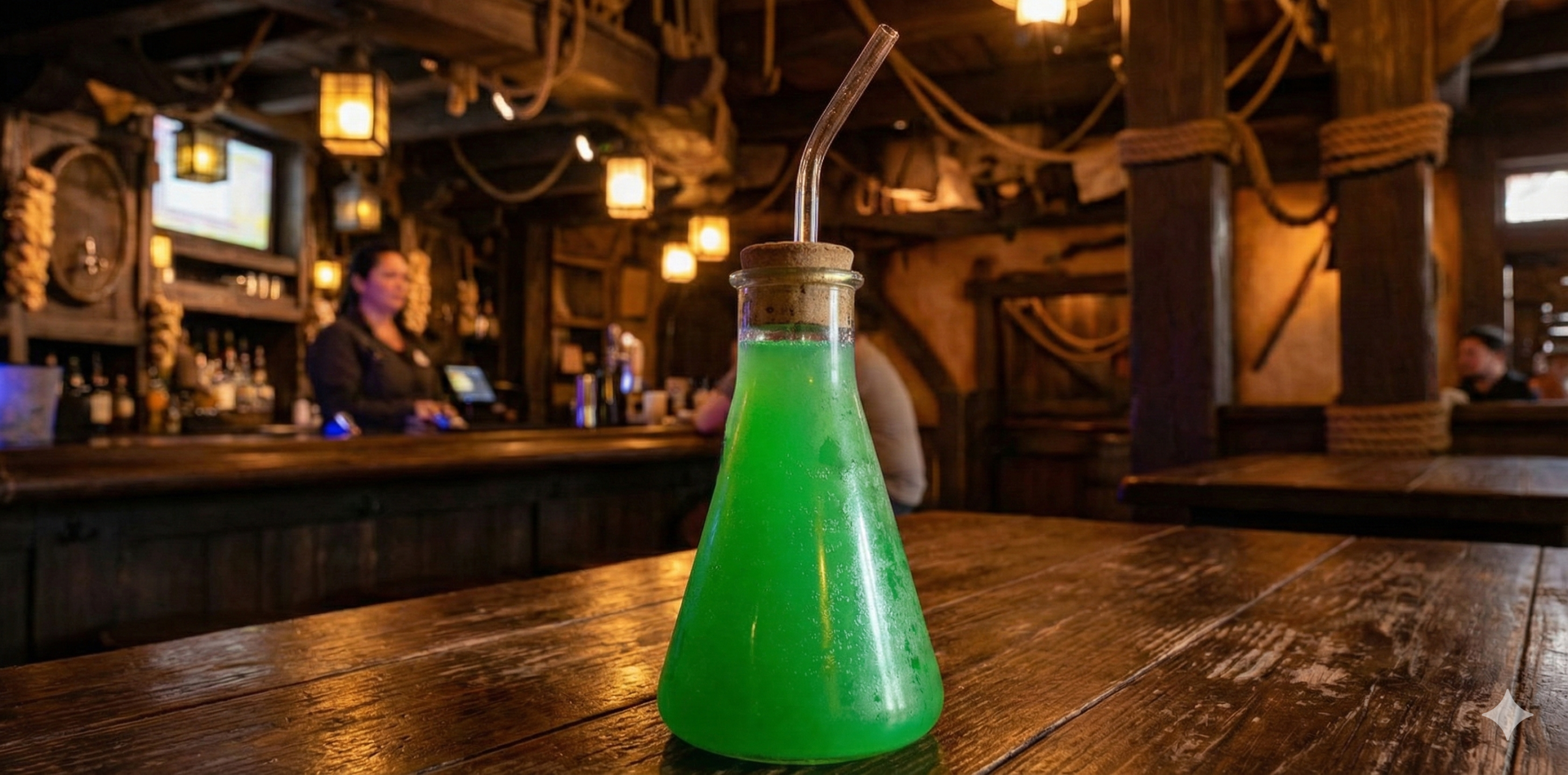Welcome to the world of dried fruits for cocktails, where elegance, flavour, and sustainability merge. Get ready to transform your drinks and elevate your mixology game with our detailed guide on crafting and using these unique garnishes.
Key Takeaways
- Dehydrating fruit for cocktail garnishes is a cost-effective and sustainable method that reduces waste and extends shelf life.
- You can use a dehydrator or your oven for the dehydration process.
- Conditioning is vital to ensure your dehydrated garnishes’ best taste and texture.
- Experimenting with various fruits, including lemons, oranges, limes, and grapefruits, can open a new world of flavours for your cocktails.
The Art of Dehydrating Fruits for Cocktails
Whether you’re a professional bartender or a home mixologist, dehydrating your own fruits for cocktails might seem daunting at first, but it’s easier than you think. The dehydration process can be surprisingly simple, particularly if you use your oven.
Why Dehydrated Fruits?
With the rising popularity of artisanal cocktails, dehydrated fruits have become a staple for their aesthetic appeal and practical benefits.
Dehydrated Cocktail Garnishes Last a Very Long Time
Unlike fresh fruits, dehydrated ones can be stored for months, ensuring you always have your cocktail garnishes at hand. With dehydrated garnishes, you can add a cool citrus wheel to your drinks anytime without worrying about the fruit spoiling.
They Reduce Waste by Ensuring That Every Part of the Fruit Gets Used
By dehydrating fruits, we use every part of the fruit, not just the juice, reducing waste and making our cocktails more sustainable. This is an excellent way to eliminate waste in bars and households alike.
Dehydrated Cocktail Garnishes Let You Control Cost-Per-Garnish
By making your own dehydrated garnishes, you can significantly reduce the cost-per-garnish and allow for better control over your cocktail budget. This cost-effective method is particularly advantageous for those who love hosting cocktail parties or own bars.
Dehydrated Citrus Holds Aromatics More Effectively
Dehydrated fruits, particularly citrus, have the unique ability to hold and release aromatic compounds, enhancing the sensory experience of your cocktail. The dried fruit provides a rich flavour and aroma that can elevate any drink.
You Can Dehydrate, Well, Anything as a Cocktail Garnish
The beauty of dehydration is that it isn’t limited to a certain type of fruit – you can dehydrate anything to create a unique garnish for your cocktails. The possibilities are virtually endless, from lemons, limes, oranges, and grapefruit.
Think you know your drinks as well as your garnishes? ➤ Play Guess The Cocktail!
Methods of Dehydration
Dehydrating with a Dehydrator
A food dehydrator is a handy tool that can make the dehydration process quick and straightforward. It uniformly removes moisture from the slices of fruit, leaving you with perfect dehydrated citrus wheels that will last forever.
Dehydrating with an Oven
If you don’t have a food dehydrator, don’t worry – your own oven can serve the same purpose with just a bit more attention to detail.
7 Steps to Dehydrating Fruit in the Oven
Dehydrating fruit in the oven might require a bit of time, but the end result is worth it – let’s break down the process into seven easy steps:
- Start by selecting your fruit – citrus fruits like lemons, limes, oranges, and grapefruit work exceptionally well.
- Clean the fruits thoroughly and slice them into thin wheels.
- Arrange the slices on a baking tray lined with parchment paper.
- Set your oven to its lowest temperature setting.
- Slowly dehydrate the slices for several hours, turning occasionally.
- Once completely dried, let the slices cool down inside the oven.
- Store the cooled, dehydrated citrus wheels in airtight containers or bags away from light and heat.
Conditioning Dehydrated Fruits
Conditioning is the final, crucial step to ensure your dehydrated fruits are ready for their starring role in your cocktails. This process involves storing the dehydrated fruit garnishes in containers for a week to ten days, shaking them daily to distribute any remaining moisture evenly. It ensures a good texture and optimal taste for your dehydrated garnishes.
Highlight: Dehydrated Lemon
Let’s take a closer look at one of the most popular dehydrated garnishes – the lemon. Its tart flavour pairs well with a variety of drinks, and the vibrant yellow of dehydrated lemon slices can brighten any glass. Furthermore, lemon wheels add an eye-catching pop of colour to the rim of the glass.
“Last Call” – Wrapping it up
Embracing dehydrated fruits as cocktail garnishes elevates your mixology game and opens the door to a world of creativity, sustainability, and cost-effectiveness. With the long shelf life of these garnishes, you can add a splash of flavour and a dash of colour to your drinks anytime you want.
Dried Fruits for Cocktails FAQ
What dried fruit is good in cocktails?
Various types of dried fruit can make excellent cocktail garnishes. Citrus fruits like lemons, limes, oranges, and grapefruits are particularly popular. Other fruits, such as apples, pears, pineapples, and even berries, can also be used to add a unique twist to your drinks.
How do you use dehydrated fruit in a drink?
Dehydrated fruit can be used in a few ways in a drink. You can place it on the rim of the glass, float it on top of the drink, or even infuse it directly into the drink to add more complex flavours.
How to make cocktail dried fruit?
To make dried fruit for cocktails, you can use a dehydrator or your oven. The process involves cleaning the fruits, slicing them into thin wheels or strips, and then drying them at a low temperature for several hours until all the moisture is gone.
What do you put on fruit before dehydrating?
Typically, you don’t need to put anything on the fruit before dehydrating. However, to prevent browning (especially for apples, pears, and similar fruits), dip the slices in a lemon juice and water solution before dehydrating.
Why use dehydrated fruit for cocktails?
Dehydrated fruits are great for cocktails for several reasons. They add a pop of colour and a unique, concentrated flavour to the drinks. They also last a long time, reducing waste and allowing you to have garnishes on hand at all times.
Does dried fruit need to be soaked?
No, dried fruit does not need to be soaked before using it as a garnish in cocktails. However, they will rehydrate slightly when in the drink, and some people choose to soak the fruit in the cocktail ingredients to infuse additional flavour.
Can you eat the dried fruit in cocktails?
Yes, you can eat the dried fruit in cocktails. They’re fully edible and often carry a concentrated flavour of the fruit, which can be a pleasant burst of taste after finishing the drink.
Is dehydrated fruit the same as dried fruit?
Yes, dehydrated fruit is a type of dried fruit. The terms are often used interchangeably, but dehydrating specifically refers to removing moisture from the fruit using controlled heat.
Is dried fruit higher in sugar?
Dried fruit does have a higher sugar concentration than fresh fruit. This is because dehydration removes water, leading to a more concentrated presence of sugars. However, no additional sugar is added unless specified.
Which dried fruit has the lowest sugar content?
Fruits like strawberries, cranberries, and raspberries are lower in sugar and can be a good choice if you’re looking for a less sweet option.
What other fruits can be used as cocktail garnishes?
Aside from citrus, many fruits make excellent garnishes. These include but are not limited to cherries, berries, pineapples, kiwis, peaches, and even herbs like mint.
How long do dehydrated fruits last as garnishes?
Dehydrated fruits can last up to a year when properly stored in a cool, dark place and in airtight containers.
What are the best ways to store dehydrated fruit garnishes?
The best way to store dehydrated fruit garnishes is in airtight containers in a cool, dark place. This helps keep them dry and preserves their flavour and texture.
Can I dehydrate fruits with the skin/rind on?
Yes, you can dehydrate fruits with the skin or rind on. In fact, the rind adds colour and flavour for many fruits.
How can I ensure the best flavour from my dehydrated garnishes?
Use ripe, quality fruit to ensure the best flavour from your dehydrated garnishes. Also, storing the garnishes properly in airtight containers in cool, dark places will help maintain their flavour.




